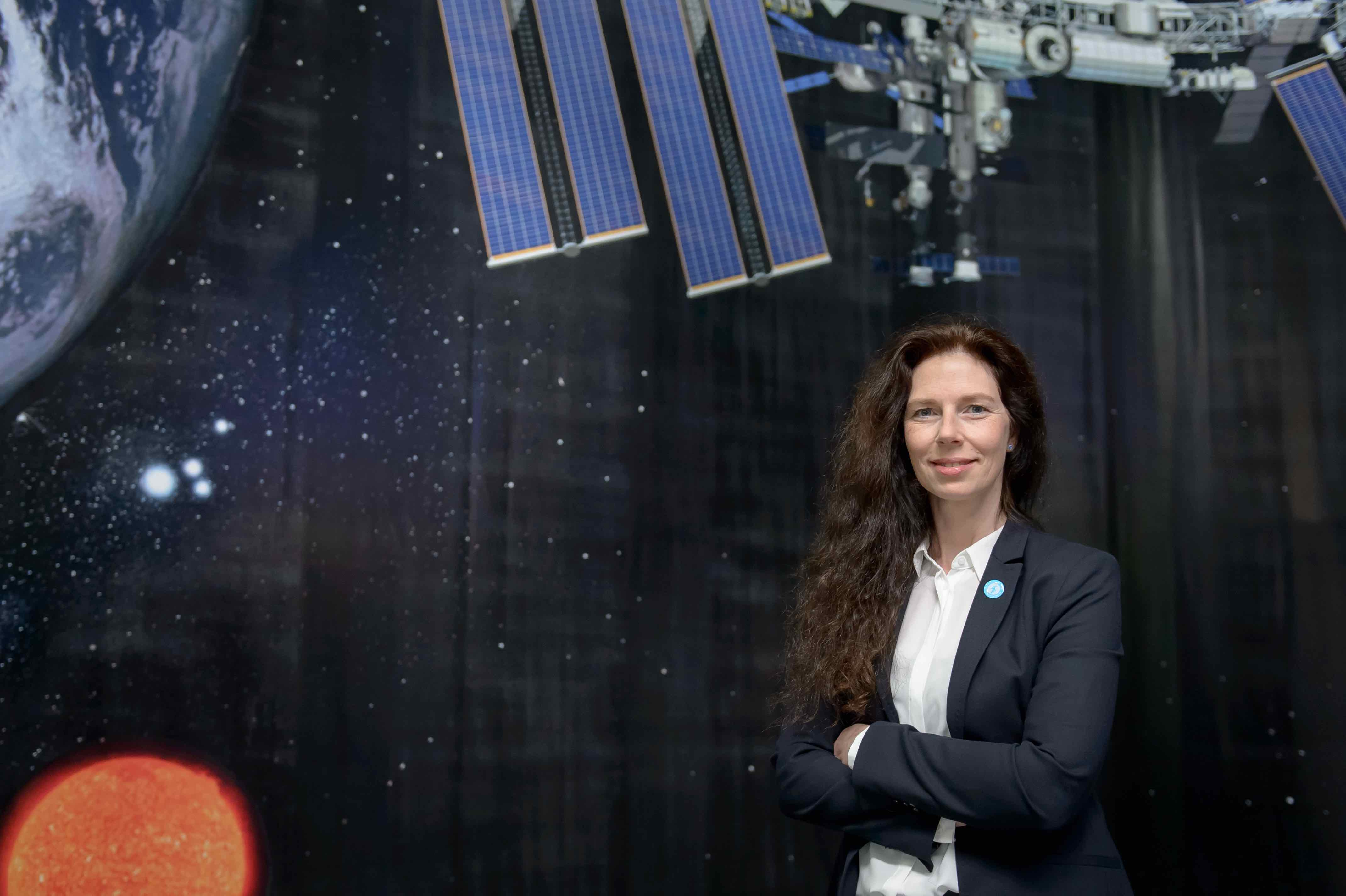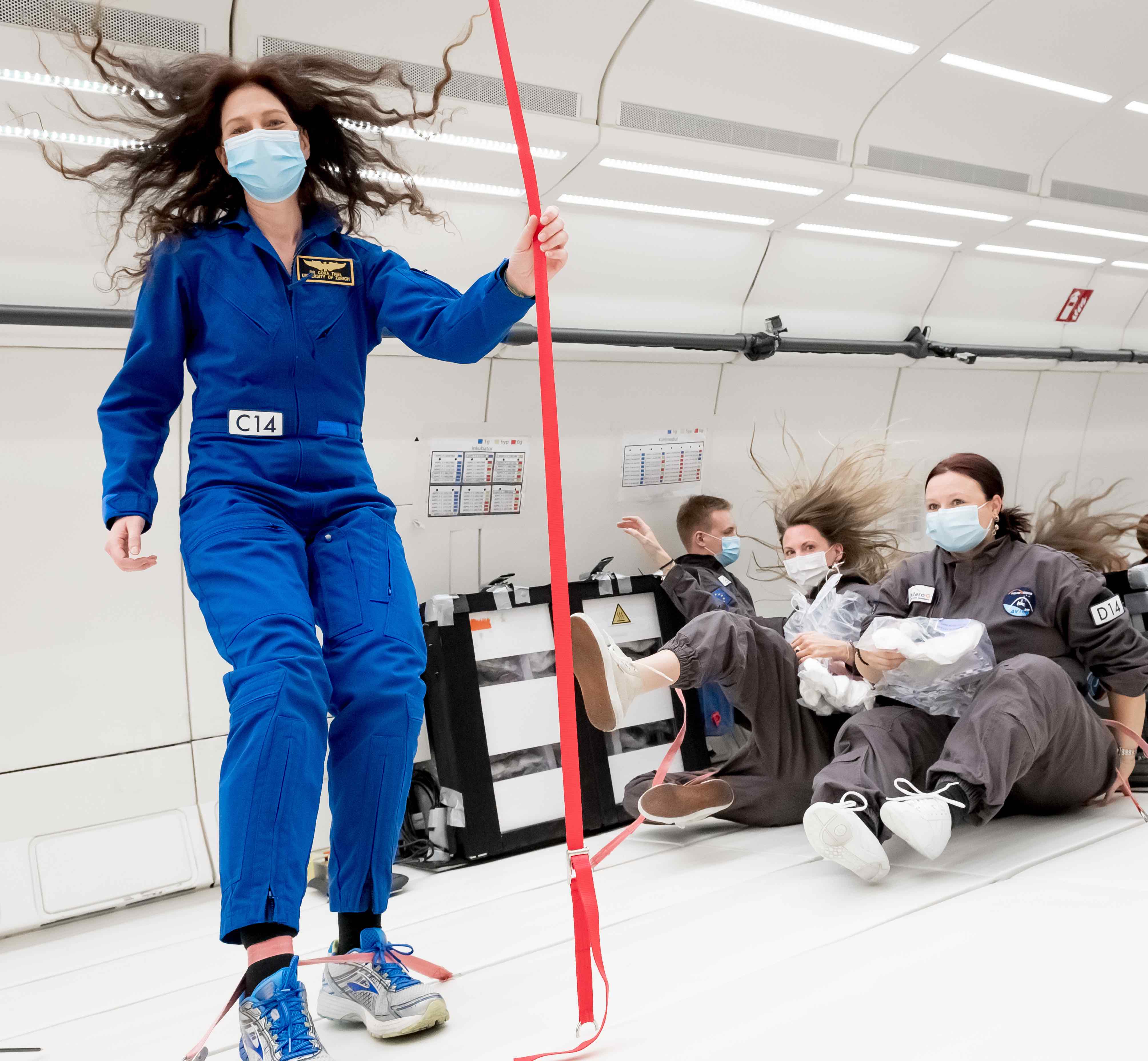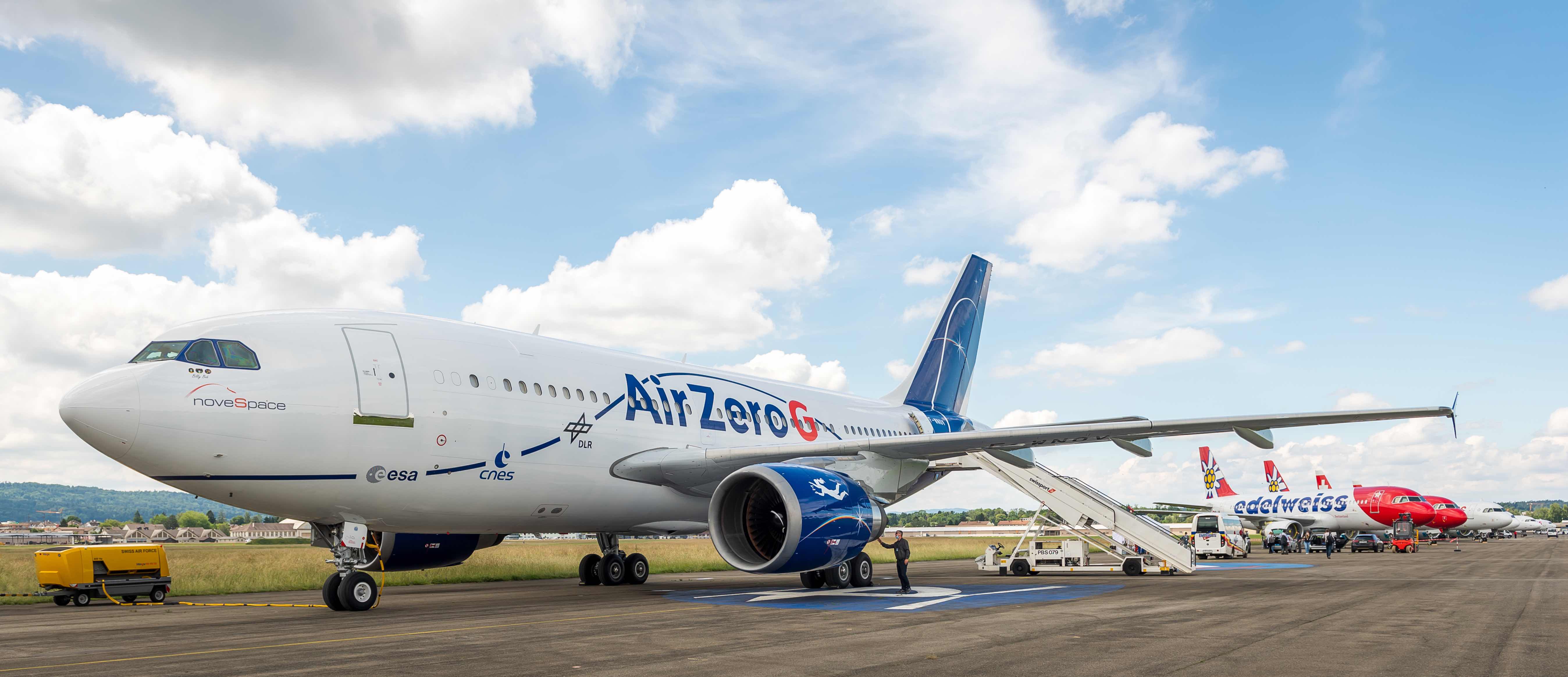Meet a Space Scientist: Dr. Cora Thiel
This month we have interviewed Dr. Cora Thiel, Research Group Leader at the Institute of Anatomy, University of Zurich. Her research focuses on the impact of Earth’s gravity on chromatin structure and gene expression regulation in cells of the immune system. She was a member of the 4th Swiss Parabolic Flight Campaign crew, curious? Read the full interview!

What is the main area of your research?
Together with my research partner Oliver Ullrich, I investigate the impact of Earth’s gravity on chromatin structure and gene expression regulation in cells of the immune system. Gravity has been a constant force during the evolution of life on Earth and is therefore an important factor influencing the architecture and function of cells as well as of entire organisms. Cells of the immune system are very sensitive to gravitational changes and represent a perfect model to analyze the impact of Earth’s gravity on chromatin and gene expression homeostasis. With our experiments performed on different microgravity platforms, like parabolic flights, suborbital ballistic rockets and International Space Station (ISS) missions, we follow a coordinated multi-platform and multi-cell-type approach to elucidate the molecular mechanisms of gravitational force transduction and how the non-specific gravitational force is transduced into specific changes of chromatin architecture and gene expression responses. The understanding of gravity-dependent immune regulation will contribute to the risk assessment and development of potential countermeasures for exploration class missions as well as to the unraveling of the immune system disturbances on Earth.

What did bring you to the Space sector?
The stars and space have always fascinated me. One day I unexpectedly got the chance to get an insight into weightlessness research. The research field mesmerized and captivated me immediately. What happens if we take away or change the force under which everything on this Earth has developed? How does the whole human organism, its organs, tissues and single cells react to it? Can the cells of the human body adapt to weightlessness? Will we ever be able to leave our planet and go on long-term missions? Fortunately, I now have the opportunity to work in this field and to contribute to answer these central questions.
What do you like most about your job?
The fantastic research environment and incomparable partnership with Oliver Ullrich. This research field crosses borders in many respects. It is interdisciplinary and international and I have the impression that we are constantly discovering something new and unknown. There are always new challenges to be faced. You feel like a pioneer discovering a new world. I have never experienced so much collegiality, helpfulness and support in any other field of science. It is natural to help and support each other in this research community.
What would be the greatest achievement in the Space Sector?
One would be to find out how cells of the human body perceive and react to (altered) gravity and whether they can fully adapt to a new gravity situation. With this, it would be alsp possible to answer the question whether humans are made for living permanently in weightlessness or on another planet. Another milestone would be the answer to the question whether there is life outside our planet.
You are part of the UZH Space Hub: What do you think this will mean for you and your research?
The UZH Space Hub brings together scientists who would otherwise have difficulties finding each other and represents therefore a unique breeding ground and incubator for new research ideas. Another important factor is that access to the UZH Space Hub is much less bureaucratic for us and will facilitate our work, especially for campaigns launched from the nearby airfield in Dübendorf. A perfect example is the recent 4th Swiss Parabolic Flight Campaign. The close proximity between our laboratories and the Airbus A310 Zero G being our microgravity research platform allowed us the optimal preparation of our complex experiments and resulted in a successful outcome.

In a current experiment you have sent cells to a parabolic flight. What do you hope to find out with this project/what is the vision behind this test project?
Oliver Ullrich and I could show in previous experiments that human cells quickly adapt to altered gravity. So far, it is unknown how this adaptation occurs. In our experiments on the 4th Swiss Parabolic Flight Campaign, we investigate the relation between altered gravity and changes in chromatin architecture as well as gene expression regulation. We investigate which molecules switch on or off certain genes under hypergravity and microgravity conditions, and if this reaction is encoded by the geometric position of the genes.
Images credits: Regina Sablotny